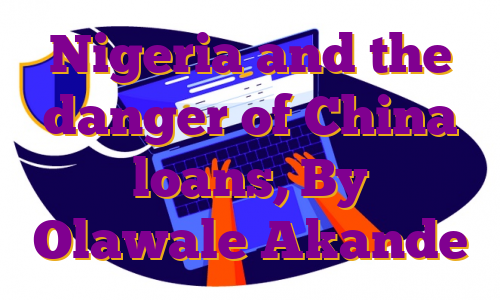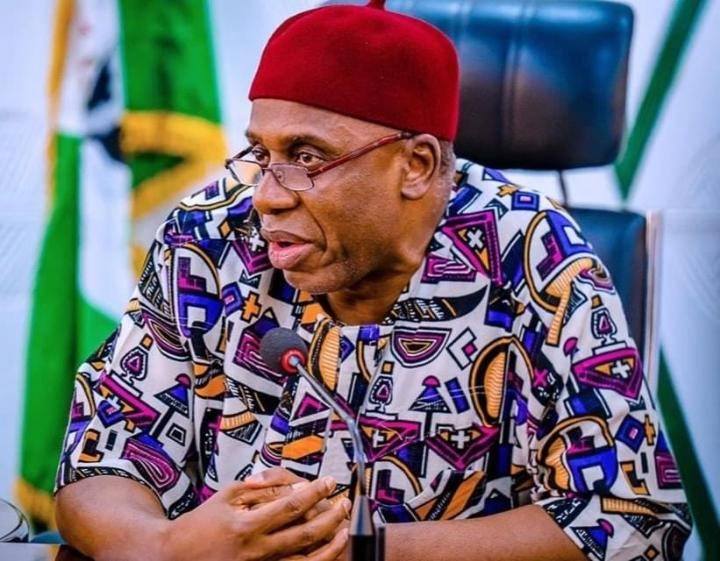Rotimi Chibuike Amaechi, the current Minister of Transport in Nigeria recently declared his candidacy for the 2023 presidential election on the platform of the ruling All Nigeria Peoples
Congress (APC).
We believe that it is within his rights to do so. However, we must examine carefully the implications of an Amaechi presidency for Nigeria.
Amaechi is one of the luckiest Nigerian politicians who have remained consistently in the corridors of power since the advent of the fourth republic in 1999.
We have no grouse with that, but his activities as the Minister of Transport, especially his handling of Chinese contractors, needs intense scrutiny.
Anybody who seeks to attain the presidency of Nigeria needs to be assessed on their track records so that candidates found to have sought the validation of a foreign power now or in the past should be dropped like a hot potato because this portends great danger to the development and future of the country.
Such a candidate should be considered as not meaning well for the people and if he or she is inadvertently allowed to attain that position, then everyone should sit up to endure the worst sufferings and dehumanization in the history of this nation.
It is our patriotic duty to serve notice of things to come if a candidate like Amaechi is allowed to take control of this nation.
In 2020 when the National Assembly raised the alarm over the sovereignty clause in the Chinese loan agreements, Amaechi’s initial reaction was to vehemently defend the inclusion of that clause.
He went further to ask “is China our father that will give us money for free?”
The issue here is not about paying back the loans because it is a given that he who borrows is obliged to pay back, but our problem with Amaechi’s position is the vehemence with which he defended China’s loan policy. That arouses deep suspicion that there could be something he is not telling us.
Nigeria has a long history of taking loans from IMF, World Bank, the Paris Club, the London Club, etc but never should we accept the abridgment of our sovereignty under whatever guise.
We must tread carefully before we sleepwalk this nation into another colonial bondage, this time under the very oppressive hands of the Chinese. If you are in doubt, ask the Tibetans who are today treated as second-class citizens in their own country.
The Chinese administrative model is built around tyranny, deprivation of all freedoms, including press freedom, religious freedom, human rights, and democratic rights.
We must learn from the recent experience of other countries.
The Chinese have all but taken over the economy of Zambia, especially the copper mines and the transport infrastructure.
To crown it all, if not for worldwide outrage Chinese policemen would have been operating freely in Zambia today.
Still on the Zambian experience, recently about 51 Zambians died in a Chinese factory explosion as a result of poor working and safety conditions.
In 2010 two Chinese nationals shot at Zambian workers who were protesting poor working conditions at a copper mine. All charges against the Chinese felons were later dropped and they walked away free. There are reported cases where Chinese restaurants on Zambian soil deny entry to Zambian nationals.
Are these precursors to what China loans portend for Nigeria?
Presently, there are very disturbing conversations in knowledgeable circles about China allegedly having interest in sponsoring a candidate for the office of president of Nigeria covertly. If this is true then we should all brace up for a repeat of our dark history where traditional rulers sold their people into slavery. Only this time the slave masters will be the Chinese in collusion with their fronts in government.
Nigeria has passed through a lot of challenges in her chequered history, but all that will be child’s play if the country is handed over to a puppet under the effective control of Chinese puppeteers.
The South African Institute of International Affairs in a recent study made the following observations:
- It notes ” that debt to Africa provides business opportunities for Chinese contractors…this creates a dynamic where Africa is getting into debt with China and China then pays herself through contracting.”
- Some Chinese loans are resource or commodity-backed loans where the Chinese pay back themselves by exploiting the natural resources of debtor nations.
We have examples of this currently happening in Zambia, Congo, etc.
- China is saddling Africa with unsustainable debt and seeks to use indebtedness to further its geopolitical control over the continent.
There are also fears that it will be easy for corrupt African leaders to divert Chinese loans for
self-aggrandizement due to the opacity around Chinese loans.
For instance, under Rotimi Amaechi’s watch, Nigeria has obtained numerous transport-
related loans from China but we discover a great disparity with the projects executed when
compared with the quantum of loans collected.
For instance, about 3 billion dollars worth of Chinese loans has been disbursed up till
December 31, 2021 for various railway projects under the supervision of Amaechi with the
level of jobs executed so far falling far short of the amounts of loans collected and disbursed.
The question begging for an answer is: what has happened to the huge unaccounted portions
of these loans?
The prevalent fear is that they might have been swallowed up by massive sinkhole of
corruption in the Amaechi-led Transport Ministry through the award of all sorts of contracts to both qualified and unqualified cronies and companies.
It is a truism today that Chinese loans are packaged in furtherance of their “debt-trap
diplomacy…which describes a creditor country or institution extending debts to a borrowing nation partially, or solely, to increase the lender’s political leverage.”
Some countries today are groaning under this debt trap.
A few examples will suffice: The Solomon Islands have virtually been colonized by the
Chinese today.
The Sri Lankan port of Colombo is today under the control and management of the Chinese.
Countries like the Maldives, Sudan, Ethiopia, Angola, Djibouti, Surinam, and Equatorial Guinea are struggling under the heavy burden of Chinese loans and are on the verge of becoming debt-trap nations.
Knowing the catastrophic implications of falling into the Chinese debt trap it will be in the interest of Nigeria to keep any suspected Chinese apologist away from the presidency of the country.
Nigerians, the ball is in your court to rise as one and ensure that such a calamity does not
befall our dear nation.
*Olawale Akande, Executive Director, Free Enterprise Project, writes from Abuja. His views do not represent that of PREMIUM TIMES.
Support PREMIUM TIMES’ journalism of integrity and credibility
Good journalism costs a lot of money. Yet only good journalism can ensure the possibility of a good society, an accountable democracy, and a transparent government.
For continued free access to the best investigative journalism in the country we ask you to consider making a modest support to this noble endeavour.
By contributing to PREMIUM TIMES, you are helping to sustain a journalism of relevance and ensuring it remains free and available to all.
Donate
TEXT AD: To place an advert here . Call Willie – +2348098788999


(function() {
var _fbq = window._fbq || (window._fbq = []);
if (!_fbq.loaded) {
var fbds = document.createElement(‘script’);
fbds.async = true;
fbds.src = ‘//connect.facebook.net/en_US/fbds.js’;
var s = document.getElementsByTagName(‘script’)[0];
s.parentNode.insertBefore(fbds, s);
_fbq.loaded = true;
}
_fbq.push([‘addPixelId’, ‘756614861070731’]);
})();
window._fbq = window._fbq || [];
window._fbq.push([‘track’, ‘PixelInitialized’, {}]);
!function(f,b,e,v,n,t,s){if(f.fbq)return;n=f.fbq=function(){n.callMethod?
n.callMethod.apply(n,arguments):n.queue.push(arguments)};if(!f._fbq)f._fbq=n;
n.push=n;n.loaded=!0;n.version=’2.0′;n.queue=[];t=b.createElement(e);t.async=!0;
t.src=v;s=b.getElementsByTagName(e)[0];s.parentNode.insertBefore(t,s)}(window,
document,’script’,’https://connect.facebook.net/en_US/fbevents.js’);
(function(d, s, id) { var js, fjs = d.getElementsByTagName(s)[0]; if (d.getElementById(id)) return; js = d.createElement(s); js.id = id; js.src = ‘https://connect.facebook.net/en_GB/sdk.js#xfbml=1&appId=249643311490&version=v2.3’; fjs.parentNode.insertBefore(js, fjs); }(document, ‘script’, ‘facebook-jssdk’));


